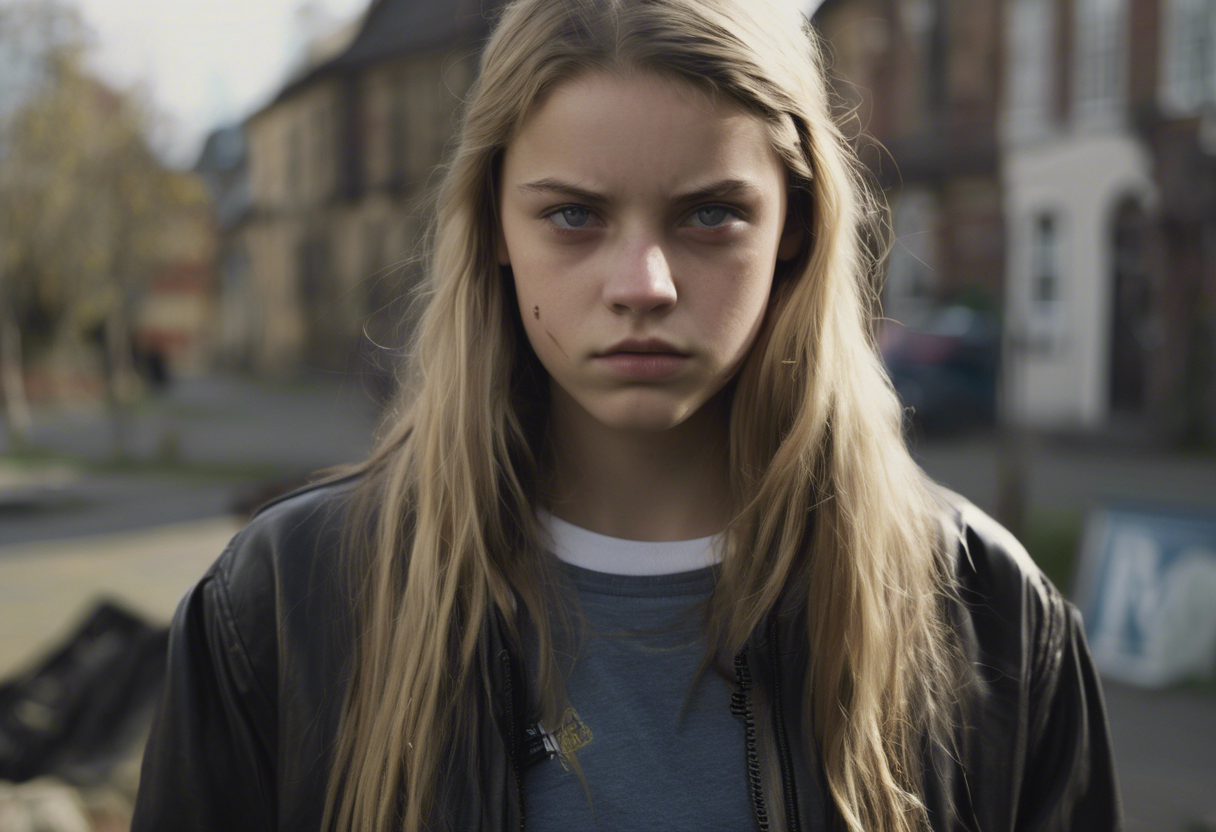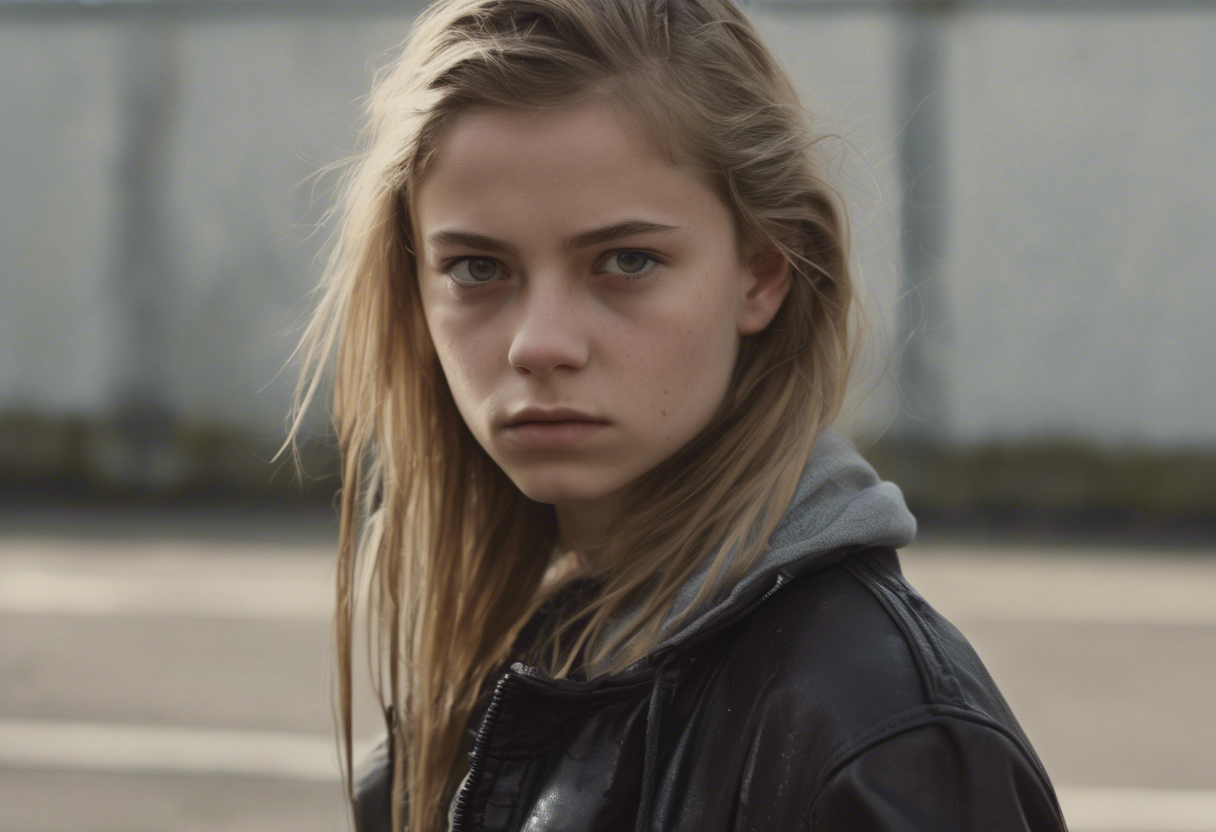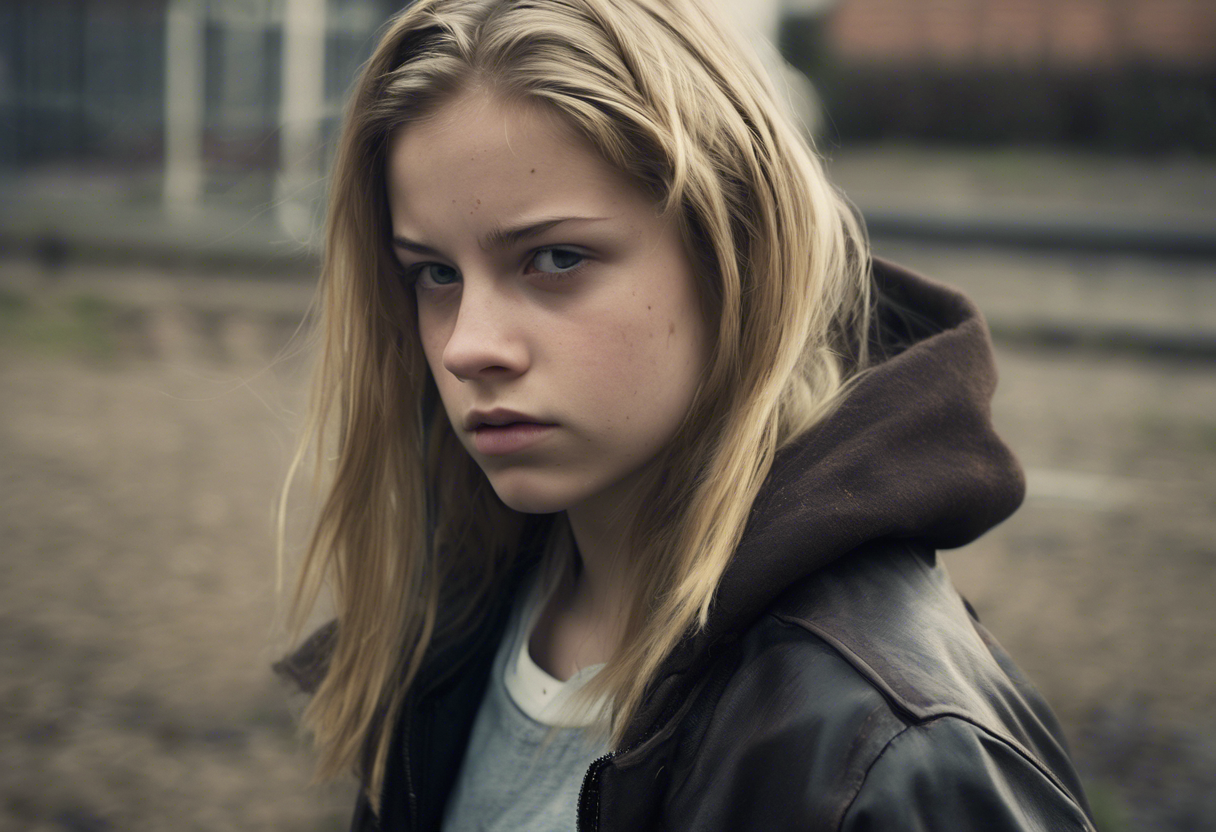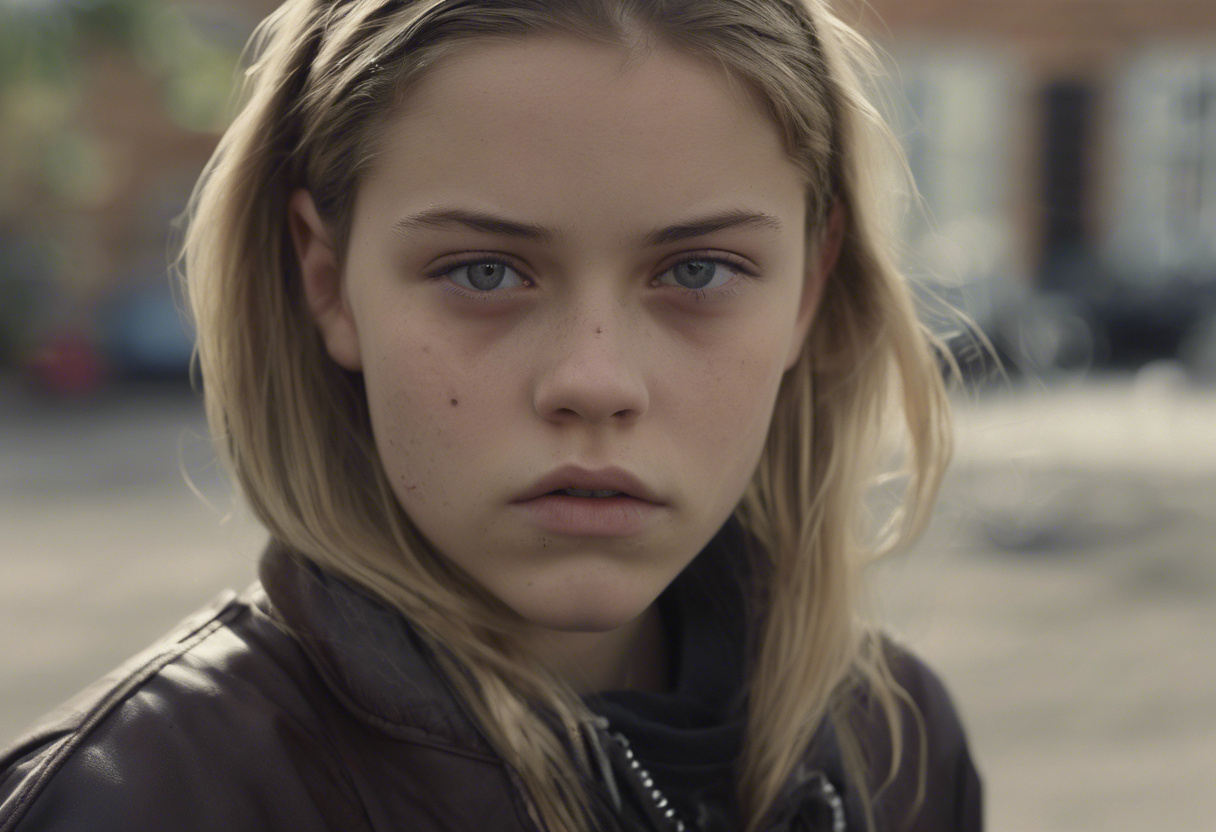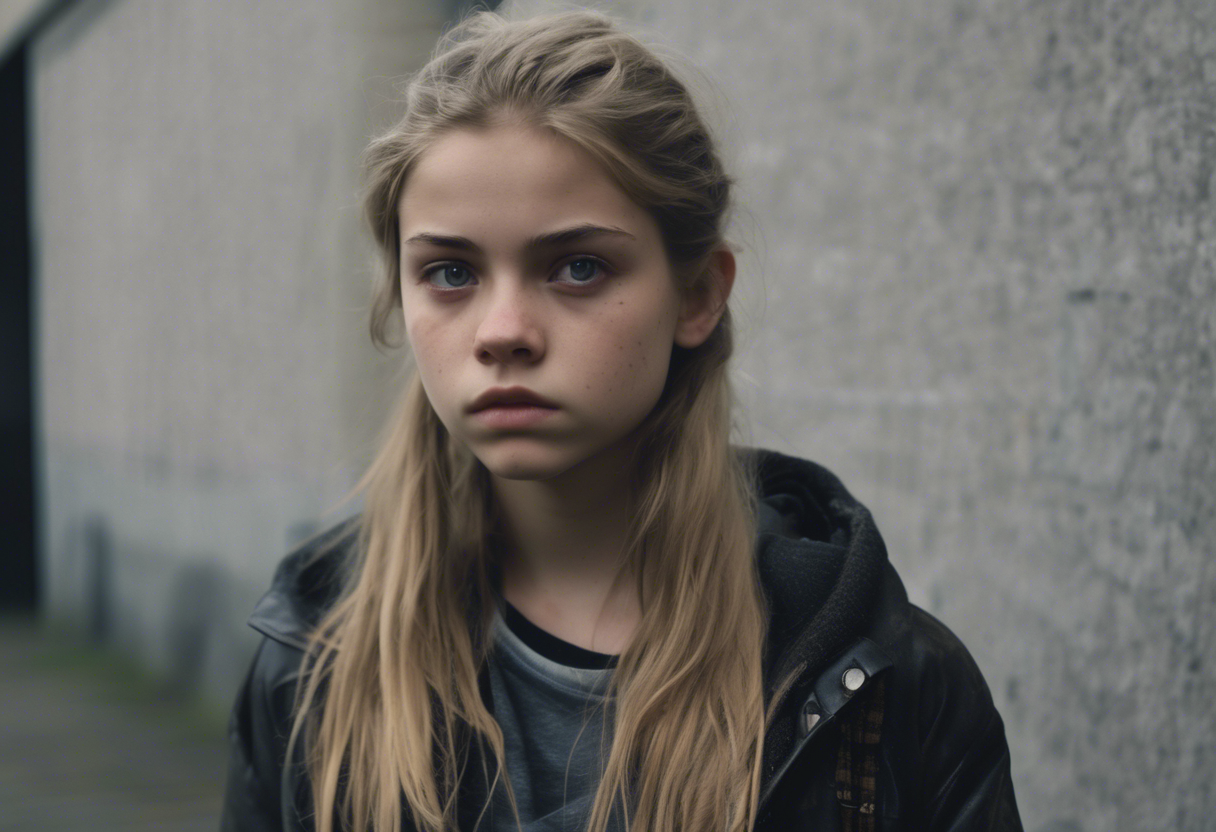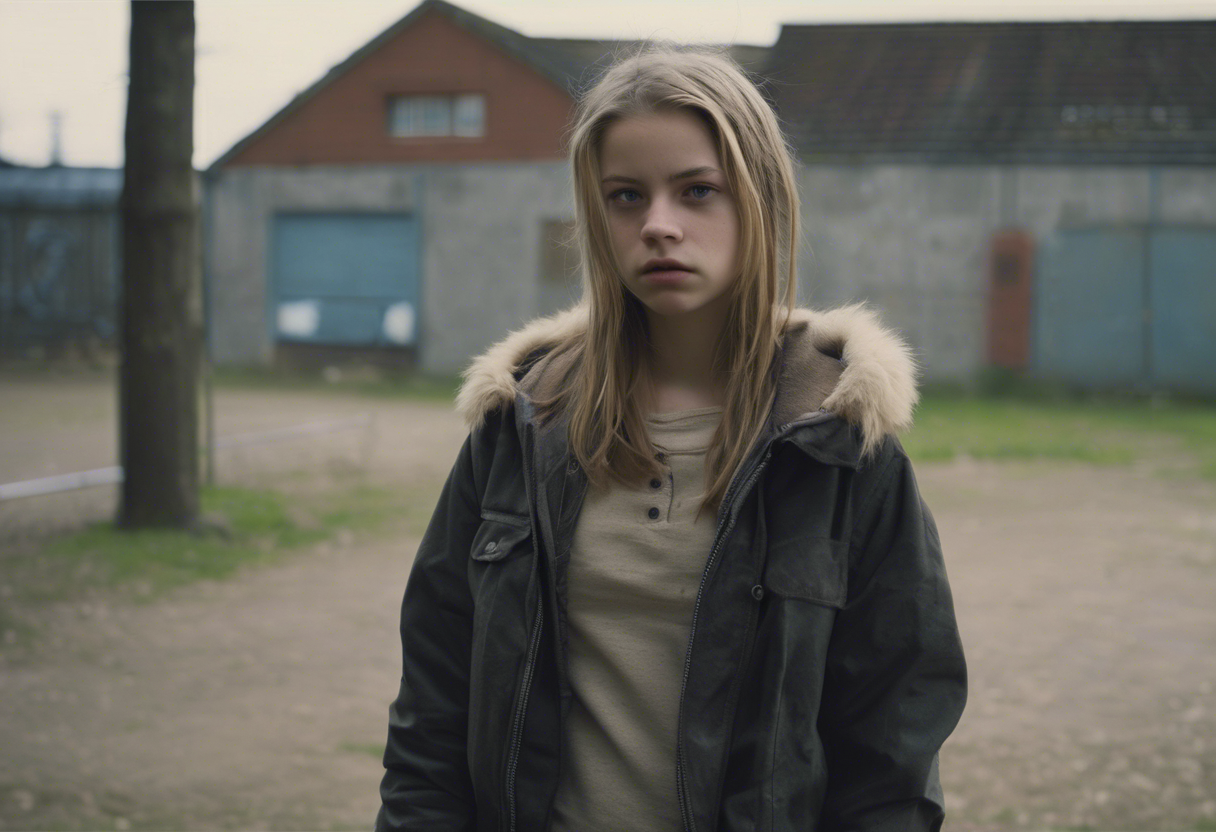Contents
Franziska Doppler: A Complex and Rebel Heart in Netflix’s Dark
Introduction
Franziska Doppler, portrayed by German actress Gina Alice Stiebitz, is a pivotal character in the Netflix series Dark, a complex and intricate narrative that delves into the mysteries and interconnected lives of the residents in the fictional German town of Winden. As the daughter of Peter and Charlotte Doppler, and the older sister of Elisabeth, Franziska embodies a rebellious spirit and a deep-seated desire to escape the suffocating environment of her hometown.
Franziska’s character is significant not only within the context of her family dynamics but also in the broader narrative of Dark, which explores themes of time travel, family secrets, and the cyclical nature of fate. Her role is intertwined with the show’s central mysteries, making her a crucial element in unraveling the series’ complex plot.
Role in the Series
Franziska Doppler’s storyline in Dark is marked by her tumultuous relationships and her longing for freedom from the constraints of Winden. As a teenager in 2019, Franziska is a rhythmic gymnast, but her athletic pursuits are overshadowed by her rebellious nature and her desire to break free from her family’s expectations and the town’s oppressive atmosphere.
One of the key aspects of Franziska’s character is her relationship with Magnus Nielsen, the son of Ulrich and Katharina Nielsen. This relationship is fraught with challenges, particularly due to the complex web of family secrets and the time-travel elements that complicate their interactions. Franziska’s interactions with Magnus are a central part of her storyline, reflecting her need for connection and her struggle against the isolation imposed by her family and the town’s dark history[5].
Throughout the series, Franziska is involved in several key events that drive the plot forward. Her actions and decisions often have unintended consequences, contributing to the series’ theme of cause and effect. For instance, her rebellious behavior and attempts to escape Winden lead to confrontations with her parents, particularly her mother Charlotte, who is dealing with her own set of secrets and traumas.
Character Analysis
Franziska Doppler’s personality is defined by her rebelliousness, independence, and a deep-seated need for freedom. She is a young woman trapped in a town where secrets and lies are the norm, and her desire to escape is both a personal and existential quest. Her motivations are rooted in a desire to break free from the cyclical patterns of her family’s history and the suffocating environment of Winden.
One of Franziska’s strengths is her resilience. Despite facing numerous challenges and setbacks, she continues to fight for her independence and her right to make her own choices. However, this resilience is also a double-edged sword; it often leads her into conflicts and situations that exacerbate her problems.
Franziska’s flaws include her impulsiveness and her tendency to act without fully considering the consequences. This impulsiveness is both a reflection of her youth and her desperation to escape the constraints of her life. As the series progresses, Franziska undergoes significant development, learning to navigate the complexities of her relationships and the mysteries of Winden with greater maturity and understanding.
Themes and Symbolism
Franziska Doppler embodies several key themes in Dark, including the struggle for freedom, the cyclical nature of fate, and the impact of family secrets on individual lives. Her character symbolizes the rebellion against the status quo and the desire to break free from predetermined paths.
The theme of freedom is central to Franziska’s character. Her constant attempts to escape Winden symbolize the universal human desire for autonomy and self-determination. This theme is intertwined with the show’s exploration of fate and the idea that certain events are inevitable, regardless of individual actions.
Franziska’s relationships, particularly with Magnus, also symbolize the interconnectedness of lives in Winden. Their relationship highlights the complexities of love and connection in a world where time travel and family secrets complicate every interaction.
Cultural Impact
Franziska Doppler has had a significant cultural impact, particularly among fans of the series. Her portrayal by Gina Alice Stiebitz has been praised for its depth and nuance, bringing a relatable and compelling character to life. The character’s rebellious spirit and her struggles resonate with audiences, especially young viewers who may identify with her desire for independence and self-expression.
In terms of adaptations or spin-offs, Franziska’s character has not been directly featured outside of the Dark series. However, her influence can be seen in the broader cultural landscape, particularly in discussions about youth rebellion and the complexities of family dynamics.
Critical Reception
Critics and audiences have generally praised Franziska Doppler’s character for her complexity and the depth she brings to the narrative. Gina Alice Stiebitz’s performance has been highlighted for its authenticity and emotional resonance, making Franziska one of the most memorable characters in the series.
There have been some controversies surrounding Franziska’s storyline, particularly in relation to her relationships and the show’s handling of certain plot twists. However, these controversies have also contributed to the character’s enduring appeal, as they spark discussions and debates among fans.
Legacy
Franziska Doppler’s legacy in Dark is that of a rebellious and resilient character who embodies the human spirit’s desire for freedom and self-determination. Her character has inspired discussions about youth rebellion, family dynamics, and the complexities of human relationships.
In contemporary discussions, Franziska’s character continues to be a point of reference for exploring themes of identity, autonomy, and the impact of family secrets on individual lives. Her influence can be seen in other works that delve into similar themes, making her a significant character in the broader landscape of contemporary television.

